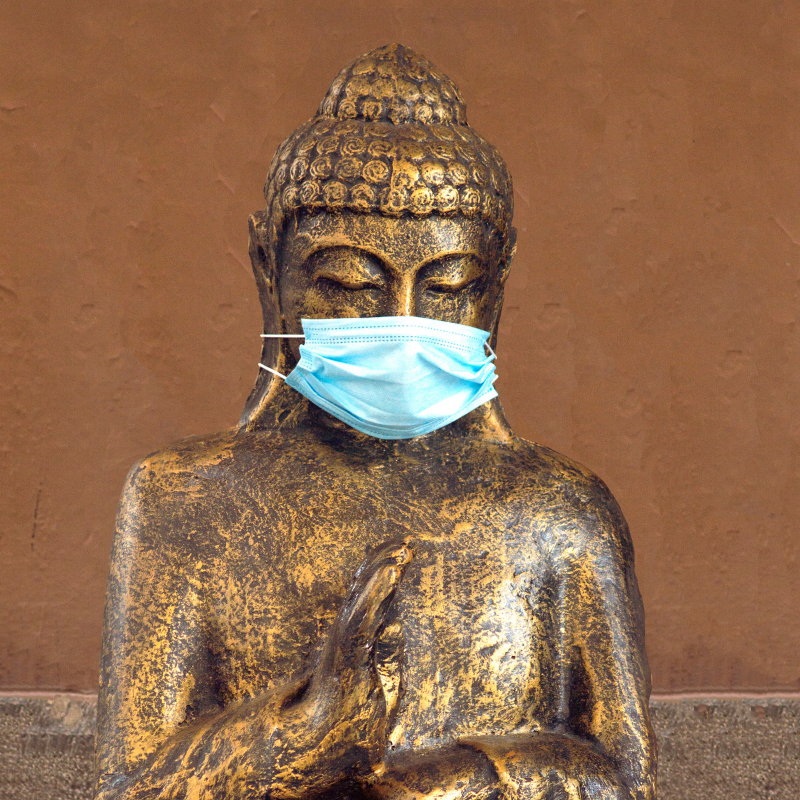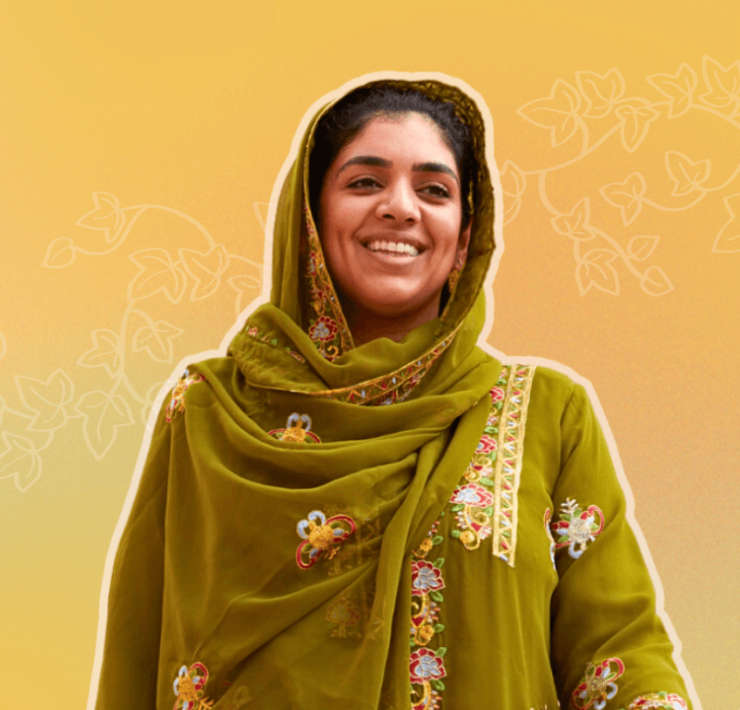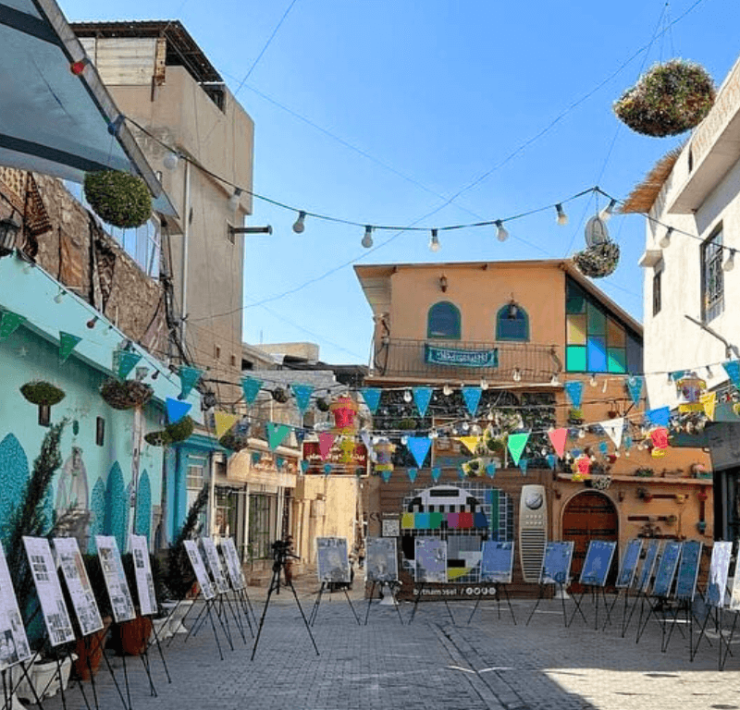First, Do No Harm
As a student and teacher of yoga, I aspire to embody the practice in my daily actions. Beyond the physical asana poses, there are seven other limbs of yoga, which include ethical rules, breathwork, concentration, and meditation. The first of the ten ethical rules (known as Yama and Niyama) is Ahimsa or non-violence, which comes first because it is both the most important and the most challenging. Ahimsa, therefore, is arguably the foundation of a true yoga practice.
As the second Yama—Satya or truthfulness—is introduced, Ahimsa quickly becomes an even more demanding proposition, for now we are being asked to tell the truth in a compassionate way. As I walk the line between kindness and truth-telling and do my best to honor both, I always remember the sacred underlying principle of do no harm. I see these two Yama as guardrails – veering too far beyond the Ahimsa guardrail leads to spiritual bypassing, while veering too far beyond the Satya guardrail causes harm.
The COVID-19 pandemic has been a fertile practice ground for walking the fine line between truth and compassion; as someone dedicated to achieving this balance, it’s been challenging to witness others in the yoga community seeming to bypass it completely. Furthermore, as a seasoned traveler and student of culture, I have a few theories to account for why so many American yoga teachers have been behaving badly during the pandemic.
American Exceptionalism
After finishing up my semester abroad in Ankara, Turkey as an undergrad, I spent some time backpacking through Europe before returning home to California. During this time, I became painfully aware of American behavior abroad. This sentiment was perfectly encapsulated for me by the ubiquitous maple leaf patch displayed on so many backpacks. The intended meaning of these decorations adorning Canadian travelers’ luggage was crystal clear: “I am not an American.”
I remember feeling deeply embarrassed that they would go to such lengths to send that message. However, I also understood it, and probably would have done the same thing in their shoes. Everywhere I went that summer, without fail, the Americans were the loudest, most obnoxious, demanding, and inappropriate travelers around. They were the least deferential to local customs, and seemed to embody a constant sense of entitlement and desire for attention. While this experience was 15 years ago, it has stayed with me and has driven me to be a model for mindful travel ever since.
I did not know the phrase “American Exceptionalism” back in 2007, but have since come to understand how deeply embedded this mindset is. As Stephen M. Walt explains in Foreign Policy, “most statements of ‘American exceptionalism’ presume that America’s values, political system, and history are unique and worthy of universal admiration. They also imply that the United States is both destined and entitled to play a distinct and positive role on the world stage… The only thing wrong with this self-congratulatory portrait of America’s global role is that it is mostly a myth.” Not only do we see this in politics and in how we travel abroad, we also see it at home.
Throughout the pandemic, we have seen American Exceptionalism rear its head in some very ugly forms. Refusing to wear masks in the name of personal liberty, freedom, and individualism has had dire consequences. At the time of writing this article, over 400,000 Americans have already died from COVID-19. The case count in the U.S. is trending up at 24 million and counting.
The refusal to wear masks is selfish, dangerous, and lacking compassion and a sense of communal responsibility. Continuing to travel during the pandemic is another example of this harmful attitude. There are only a handful of countries that have not enacted a travel ban against Americans and the ones that haven’t have suffered the consequences. Despite clear guidelines against non-essential travel, many Americans have continued to travel regardless.
As the NY Times reported, with the Mexican healthcare system at a breaking point and Americans continuing to fly south, “such laissez-faire attitudes from outsiders have angered many residents, Mexican and foreign alike. ‘Tourists (primarily from the US, it seems) have flooded into Mexico to escape the restrictions imposed by their home states,’ wrote Lauren Cocking, 26, a British blogger who has lived in Mexico for about five years, in an email. They ‘seem to treat Mexico like some kind of lawless adventure land, where they can escape the need to wear masks or stay indoors.’
While I wish I could say that the Americans flooding into Mexico are mostly immature young people or conservatives or COVID deniers, unfortunately that is not true. Their numbers notably include prominent yoga teachers and their students.
White Saviorism
The most common excuses I have heard from yoga teachers who continue to lead yoga retreats during the pandemic are the following: 1) I believe that I can ensure a safe experience and mitigate all the risks involved with traveling to a constrained foreign country during a global health crisis, and 2) What about all the poor third world people who need my help right now? They are poor and are suffering and their economy will collapse if I don’t come shopping soon.
Are you rolling your eyes as hard as I am? Becky really believes that she needs to go save poor, “third world” Costa Rica. If you aren’t familiar with the term “white saviorism,” here is a helpful definition from Annie Winholz: “The term ‘white saviorism’ refers to an idea in which a white person, or white culture, rescues people of color from their own situation. Throughout the white savior’s journey they themselves are centered: they are often portrayed as messianic and tend to ‘learn something’ about themselves in the process of rescuing others. This trope is commonly seen in movies and literature in Western society, and is reinforced by our own educational system, media, movements, religious and nonprofit sectors in America as well as our foreign policy views toward the rest of the world.” While this is certainly not specific to Americans, it dovetails pretty seamlessly into the American Exceptionalist worldview.
White saviorism is profoundly arrogant, racist, and violent. It is also indicative of deep ignorance and a lack of any real cultural understanding. While some of these yoga teachers may in fact have good intentions, they are missing the point and the opportunity to honestly interrogate their actions.
In The White-Savior Industrial Complex, Teju Cole asserts that “there is much more to doing good work than ‘making a difference.’ There is the principle of first do no harm. There is the idea that those who are being helped ought to be consulted over the matters that concern them.”
Consulted would be great, not scape-goated would be even better, Becky. If you truly are concerned with supporting Mexico or Costa Rica or the Dominican Republic or Bali during this time, send some cash and stay home.
Yoga Retreats During the Pandemic
The more I study yoga, the more I understand it as a practice of social justice. Teachers like Anusha Wijeyakumar have helped me to deepen my understanding of yoga in action. In We Need to Talk about the Rise of White Supremacy in Yoga, she says, “the journey of a person on the path of yoga is to recognize their own divine nature through the practice and, in turn, also recognize and honor the divine nature of others. Yoga teachers have popularized the statement ‘we are all one,’ but unless we actually take actions to make this a reality, it becomes an empty slogan and a part of spiritual bypassing, which causes direct harm by dismissing the discrimination of those who are marginalized and oppressed.”
We all know that cultural appropriation runs deep in yoga and wellness spaces, and that white women are largely responsible for that. Rather than honoring the teachings of yoga, Wijeyakumar continues, “these concepts appear to have been lost on members of the yoga community who never really understood the true spirit of yoga, which is love and compassion for all beings and selfless service to those in need of our protection.”
Leading yoga retreats during a global pandemic, unfortunately, does not fall within that definition. It breaks with Ahimsa and Satya in thought, word, and action. Thinking that you are an exception to the rules that keep us all safe, or that you alone can save the “third world” from despair is, frankly, rude. So is bypassing accountability for the harm you cause, intentional or not. If this article triggers you, notice that, and perhaps get curious about why you might feel defensive. Maybe pick up a copy of White Fragility (from an independent bookseller, of course).
While I will always aspire to be more skilful at speaking my truth in a kind way, I will never confuse speaking the truth with causing harm. The truth is essential for accountability, evolution, and the full, embodied practice of yoga.
Nicole Griffin is a yoga teacher, mindfulness coach and MENA retreat leader. Her retreats emphasize meaningful cultural immersion and mindful travel. The practices of yoga and mindfulness provide the ground as we explore how to take our yoga off the mat and into the world. All of Nicole’s yoga retreats give back to local charities that empower women and girls. Nicole has lived and studied abroad in Turkey, Morocco, Jordan, and Lebanon and has degrees in Islamic Art History and International Business + Arabic. You can find Nicole on Instagram and on her website.







